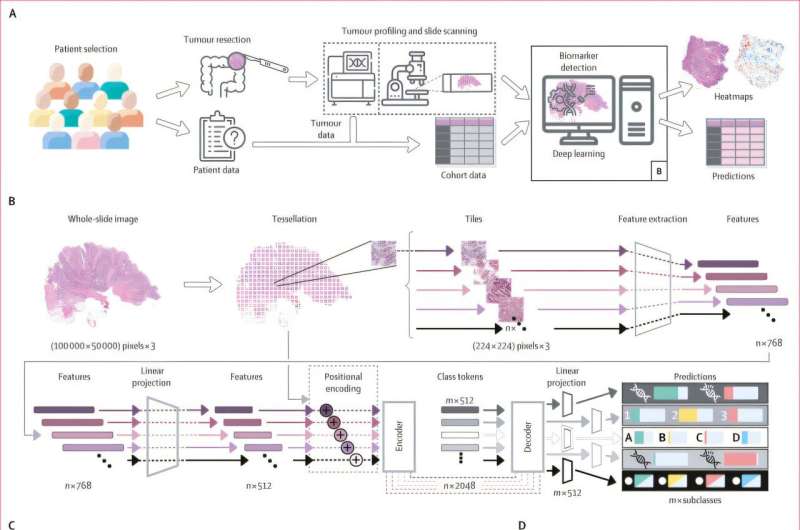The researchers have developed a novel “multi-target transformer model” to predict a wide range of genetic alterations directly from routinely stained histological colon cancer tissue sections. Previous studies were typically limited to predicting single genetic alterations and did not account for co-occurring mutations or shared morphological patterns.
The model detects genetic alterations and resulting tissue changes in colorectal cancer directly from tissue section images. This could enable faster and more cost-effective diagnostics in the future. For the development, validation, and data analysis of the model, experts in data and computer science, epidemiology, pathology, and oncology worked closely together.
The study has been published in the journal The Lancet Digital Health.

